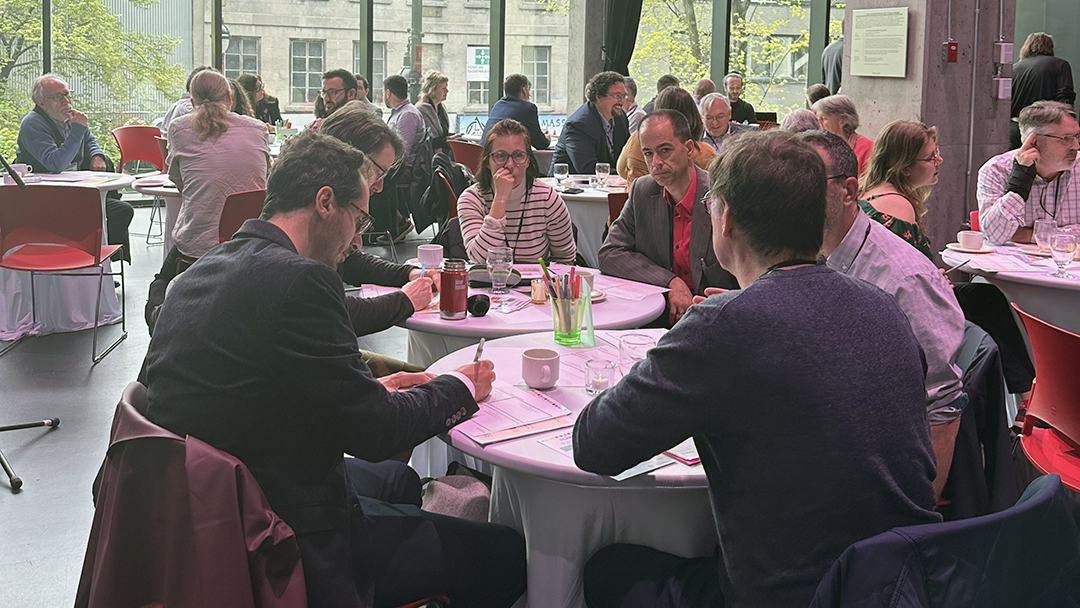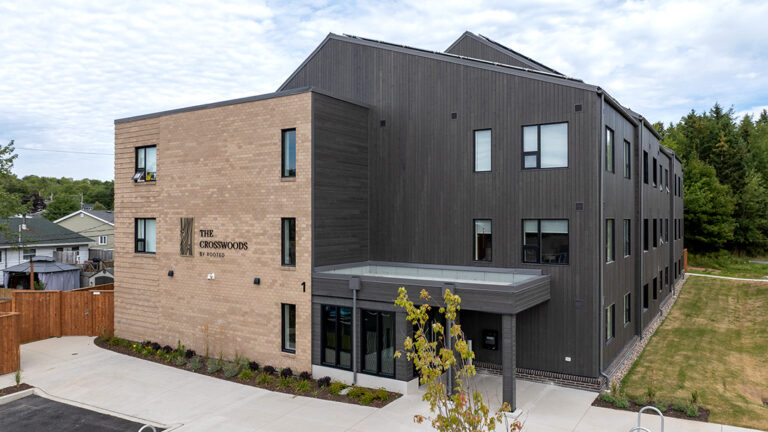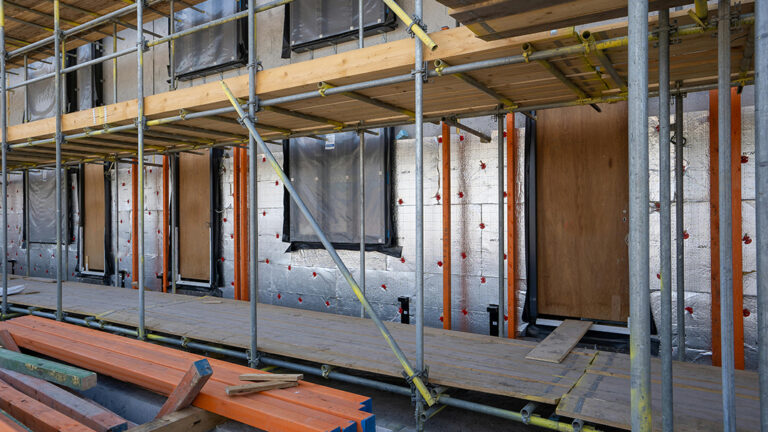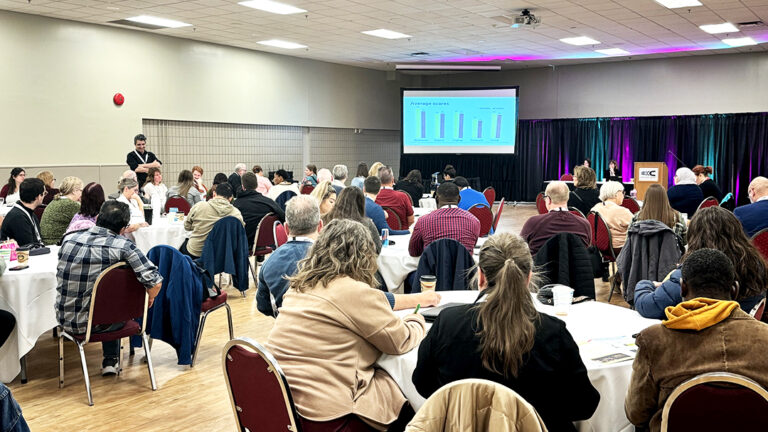The governance workshop in May marked the establishment of the fund’s Foundation Board of Directors. Since then, the Board has been diligently preparing for a Foundation general meeting, which is set to take place this autumn.
As its name implies, the workshop was an opportunity to delve into the various themes related to the governance of the future non-profit organization the PLANCHER fund will be. Participants, both on-site and online, engaged in co-creation activities using templates to guide their reflections. In this review, we examine the outcomes of these discussions to identify the sector’s expectations and questions about the project, which will inform the work of the Foundation Board.
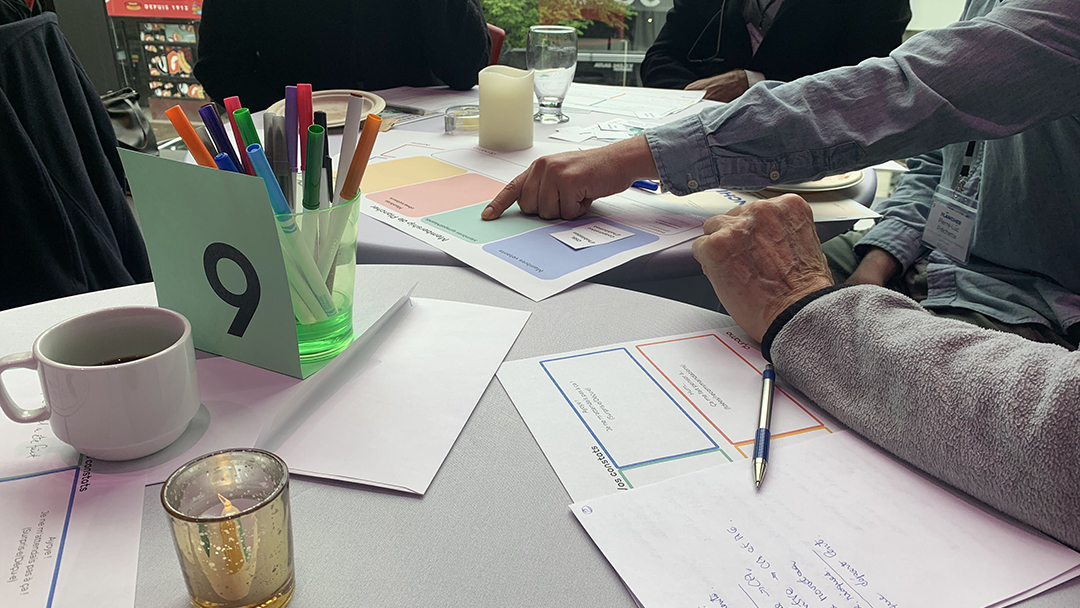
PLANCHER membership categories: Who should be represented and who should have voting rights?
It was unsurprising that a significant majority of respondents (83%) believed that participating NPOs and housing cooperatives should have voting rights at meetings. Additionally, they felt that participating land trusts and community housing federations should also be granted voting rights.

Interestingly, only 42% of respondents think that land trusts owning real estate should have voting rights. This raises the question of how familiar respondents are with land trusts. This model remains relatively unknown in Canada, so we encourage those interested to read this article. It is also worth noting that there is a growing consensus that social and community property owners should be prioritized.
Which organizations should be included in the non-voting members group?
In addition to identifying which members should be given democratic powers, participants also considered which members should be allowed to attend general meetings, some with a right to speak, but without the right to vote. These members are categorized as sympathizers or observers.

For sympathizer-type members, respondents identified GRTs as the top choice (67%), followed by regional federations (42%) and provincial and national groupings (33%).

In the observer member category, the results are less clear-cut. Governments, cities, MRCs, and private foundations each received 33% of the responses. It is evident that there is a concern about ensuring space for key partners like governments and foundations.
PLANCHER governance: towards balanced, strategic representation
Discussions determined that the board should consist of 7 to 11 voting members and 2 or 3 observer members. It should represent a diverse sample of the fund’s investors and ensure gender parity.
Experience is the key attribute sought for the fund’s Board of Directors. The board should include individuals with substantial experience in cooperatives, housing non-profits, and the social economy. Governance experience is also crucial, especially for those who have served on significant boards. Additionally, skills in real estate development, urban planning, universal accessibility, and inclusiveness are highly desirable.
The group should ensure that the fund has a clear understanding of territorial realities. This concern has been emphasized repeatedly since the start of the PLANCHER discussions. Some stakeholders working outside major urban centers deplore the general lack of attention given to rural or less populous regions.
Finally, the discussions highlighted assets like diverse experience and specialization, along with legal expertise in real estate and non-profits, as well as strong lobbying and networking skills, would be advantageous for the Board.
Next steps for PLANCHER
Registration to become a founding member of the PLANCHER Fund is still open. This does not commit you to anything, but it will allow you to receive an invitation to attend the founding general meeting, which is expected to take place in the autumn on a date yet to be determined.
